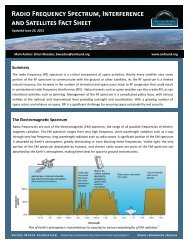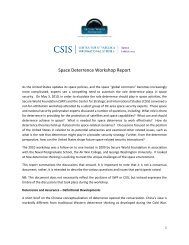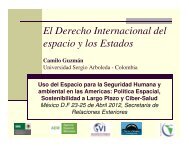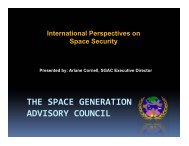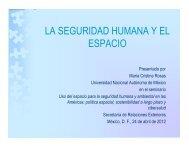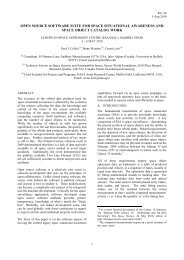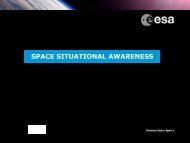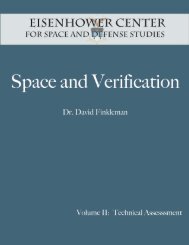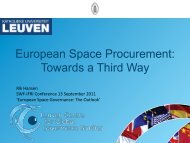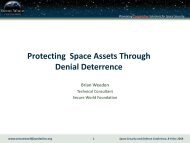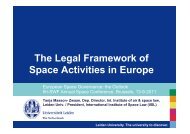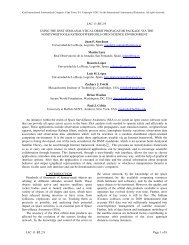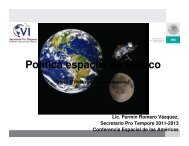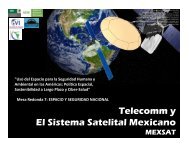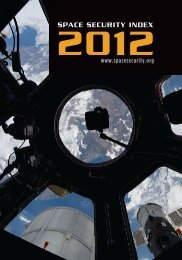Space Security Index
Space Security Index
Space Security Index
Create successful ePaper yourself
Turn your PDF publications into a flip-book with our unique Google optimized e-Paper software.
of the three preceding years, in all of which there was a major debris-generating event (antisatellite<br />
test conducted by China in January 2007, destruction of satellite USA-193 by the<br />
United States in February 2008, collision of U.S. Iridium and Russian Cosmos satellites in<br />
February 2009).<br />
<strong>Space</strong> <strong>Security</strong> 2011 does not provide absolute positive or negative assessments of 2010 outer<br />
space activities. Instead, it indicates the range of implications that developments could have on<br />
the security of space across the various indicators and highlights the dicult challenges faced<br />
by policymakers. e <strong>Space</strong> <strong>Security</strong> <strong>Index</strong> project partners hope that this publication will<br />
continue to serve as both a reference source and a policymaking tool, with the ultimate goal of<br />
enhancing the sustainability of outer space for all users.<br />
Information contained in <strong>Space</strong> <strong>Security</strong> 2011 is from open sources. Great eort is made<br />
to ensure a complete and factually accurate description of events that is based on a critical<br />
appraisal of the available information and consultation with international experts. Strategic<br />
and commercial secrecy with respect to space activities inevitably poses a challenge to the<br />
comprehensive nature of this report; but many space assets and activities are, by their very<br />
nature, in plain view to those with the technical ability to observe them. Increasingly that<br />
includes so-called amateurs who make their observations of such space assets as satellites widely<br />
available.<br />
Expert participation in the <strong>Space</strong> <strong>Security</strong> <strong>Index</strong> is a key component of the project. e primary<br />
research is peer reviewed prior to publication through three processes:<br />
1) Various technical and policy experts are asked to provide critical feedback on the draft<br />
research, which is sent to them electronically.<br />
2) e <strong>Space</strong> <strong>Security</strong> Working Group consultation is held each spring for two days to<br />
review the draft text for factual errors, misinterpretations, gaps and statements about<br />
the impact of various events. is meeting also provides an important forum for related<br />
policy dialogue on recent outer space developments.<br />
3) Finally, the Governance Group for the <strong>Space</strong> <strong>Security</strong> <strong>Index</strong> provides its comments on<br />
the penultimate draft of the text before publication.<br />
For further information about the <strong>Space</strong> <strong>Security</strong> <strong>Index</strong>, its methodology, project partners<br />
and sponsors, please visit the website www.spacesecurity.org, where the publication is also<br />
available in PDF format. Comments and suggestions to improve the project are welcome.<br />
Introduction<br />
9



